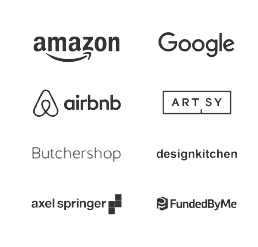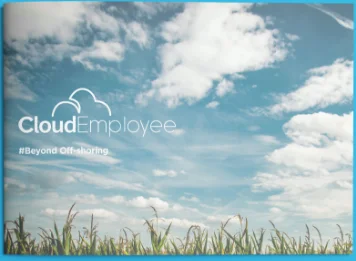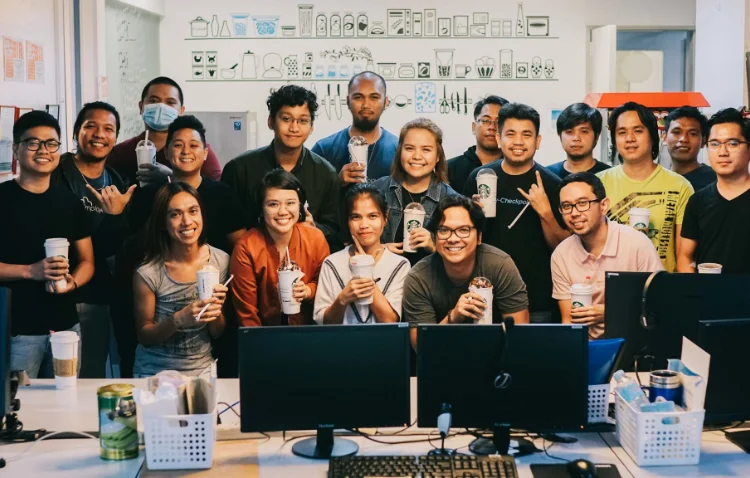Working in IT headhunting has been great. I get many opportunities to speak with seasoned developers and leaders in the IT industry. Over the years, many of them have become close friends, allowing me to pick their brains when the opportunity comes up. Recently, I had the chance to get their views on the need for a developer to have a coding portfolio.
Let's face it, programming is multi-faceted, both in learning areas and its application. While there's enough room for every prospective programmer, the programming world remains highly competitive. Nevertheless, every tech person has the option to adopt what will make them stand out among the crowd.
Yes, having coding skills is vital. Soft skills are quite important too, but a coding portfolio is also needed to sell you better to hiring managers. More than a resume, coding portfolios help others see what you've done and are capable of with the coding skills you've acquired. I cannot overemphasize the need, so if you won't downplay its importance as well, here's how to build a coding portfolio.
Do I Need a Coding Portfolio?
For a programmer or a coder, a coding portfolio is a website that lets others (recruiters, hiring managers, other programmers) into your world of programming exploits. It allows programmers to showcase what they are capable of and also what they've done with their acquired skills.
Sounds like another resume on a website, right? You can call it that if you like, but remember your resume is probably a page or two, designed not to bore the reader, but hopefully catchy enough to get them more interested in you. So, more than a resume, a coding portfolio helps you comprehensively showcase what you summarized on your resume and the other stuff that could not fit into your one or two-page resume, which includes:
Your work/projects.
Without mincing words, one of the primary functions of a tech person's portfolio is to technically "show off" how you have successfully applied your hard and soft skills. If you are aiming at landing a juicy job position in a tech firm or convince a client to let you bring their tech idea alive, your portfolio will do the talking in this regard.
With it, you demonstrate the level of competence, so the hiring person can know how valuable you are. Many offshore developers handle massive tech projects for clients from different locations because their work speaks for them.
Your Story.
More than just showcasing your past project and wealth of skills, your coding portfolio is an opportunity to tell your story. A potential client or recruiter shouldn’t just see a bunch of projects, but also your, your niche, progression, career trajectory, goals, and so on.
Your coding portfolio is a sample of your work too.
Yes, it's supposed to showcase your work, but your portfolio is also a sample of work. Remember it's a website? The viewer may also pay attention to the design, especially when you are aiming at the position of a web developer. If part of the skills you are presenting is front-end development, trust me you want to ensure your portfolio is nothing less than attractive, impressive, and responsive.
So, do you need a coding portfolio? Undoubtedly yes. A strong, and well-designed coding portfolio is an asset to any developer that is serious about standing out in an already competitive space. That said, let's get you up to speed on what makes an asset type of coding portfolio.
What Makes a Strong Portfolio?
A coding portfolio is almost useless if it won't do what it was designed for, so you want to avoid making your coding portfolio be an ordinary project dump yard. You want to make the most of it by fine-tuning it for a specific purpose. So what makes will make your portfolio strong?
You best projects.
Whether you are working for a tech firm or flying solo, you should have projects to show. Even newbie programmers, that are fresh out of college have a few things to show off like past school projects, and so on.
Programmers are supposed to be "hungry," so beyond following orders in workplaces, you should have great freelance jobs. It could be personal to showcase the niche you are interested in or how you have applied the programming language you learned.
For example, experts programmers suggest you could redesign a popular website as a web developer, pointing out ways you feel the website can be improved from the front or back end. It could also be a way of showing how creative you are. This way, you still have something to show even if you don't have any projects from clients.
Even better, it could be paid projects you have done for clients, such as mobile phone apps, games, a website, etc. If you looking to get a client to entrust a software product development in your hands, proving you have executed similar works in the past will come in handy.
Furthermore, fine-tuning is necessary, especially if you are aiming at landing a job or project with requirements for a specific programming language or niche. So, you want to let your coding portfolio target projects that demonstrate the value you will adding to them.
Balance best with recent
If you are a busy and enthusiastic programmer, learning new things and applying them would be a regular thing for you. So, having recent works to showcase shouldn't be a problem. The truth is, hiring managers and clients are more comfortable engaging a developer that not only has wealth of projects to "brag" about but has also not become a "dinosaur." Look at it this way, having a long uneventful gap in your portfolio may signal complacency, and raise doubt of your capability to handle a project. Even if you are not jumping on a new programming language now and then, you don't want to go on a long holiday of not applying your skills if you want to stand out from the crowd.
About you.
The hard skills and projects you've done are undoubtedly crucial, but recruiters want to know to whom they want to hire or entrust important projects. So, let your portfolio capture your career trajectory, goals, aspirations, etc. Experts in the industry suggest that you tell a story that shows you as a brand. Everyone wants to get paid, but you don't want to appear you are all about the next pay-check. So while you show you want the job, you also want to show the job is part of your bigger goals, niche, and development journey.
Client’s testimonial.
It's not a bad idea to get past client's testimonials to write or say a few things about the work you handled for them in the past. You don't need me to tell you these clients' should be the ones that find the project you executed for them very impressive. Furthermore, you can seek their permission to include their contact details in case a potential client or employer wants to contact them. A client testimonial is important if you are a solo programmer, handling more freelance jobs.
Give direct access to your work.
Some developers use screenshots of their work to design their tech portfolio. You'll do better to let your potential employer have access to the real thing. For example, a link to the website you designed, a direct link to where the app you designed can be downloaded, and so on. The idea here is, showing is more effective than telling.
Best Practices for Creating a Programming Portfolio
There are undoubtedly hundreds of coding or programmer portfolios that exist online, settling for a template to build yours can be a bit tricky. The truth is, it's one thing to have a tech portfolio, it's a different ball game to have something that'll be an asset and also make you stand out among those competing for the same thing you want.
However, if you understand the best practices for programming portfolios that catch the attention of recruiters and hiring managers, you can easily and successfully create one that'll properly sell you and your skills. That said, here are a few tips.
Adopt an appealing, responsive & versatile design
Sounds like a cliche or a normal thing every developer should know? You’d be surprised how boring some programmers’ online portfolio looks. You don’t have to be in the web development niche to make your website impressive. This is what will sell you while you are probably not present to have a say.
Therefore, make the website layout out attractive and catchy. Perhaps you feel that you don’t have that “designer eye”, there are free online templates that can guide you to make something fantastic. Try not to just copy and paste template designs you find online. Do some work by customizing the template.
Furthermore, you want to avoid making your coding portfolio look like an ordinary online resume, with a couple of screenshots of your work. Yeah, screenshots are not a bad idea, but a responsive or interactive website is the best way to go.
What’s more, we are in the 21st century, where mobile gadgets are more common. These days, you'll hardly find websites that are not mobile-friendly. Similarly, you want to design an online portfolio that's viewable and understandable on both mobile (phones & tablets) and PC.
Get specific.
As mentioned earlier, you don't want your portfolio to be just a project dump ground. You also want to specify which language you adopted and more importantly, why you chose a particular problem-solving option. Also, specify your role if you participated in group projects. Being able to work successfully with a team is a positive point for developers, so don't be skeptical about saying including it.
Less complex.
While coding portfolios are your chance to comprehensively showcase your work and many of the things you couldn't say on your resume, you also want to keep things less complex. Avoid too many clicks, multi-page applications, and so on. You want to put yourself in the shoes of whoever is going to view your programming portfolio, so make sure the critical information is a few clicks away.
Furthermore, one of the best practices of a programmer is that your code should be readable and understandable by another programmer, or even clients that know a thing or two about programming.
Therefore, if your portfolio isn't doing well in this area, it could be a red flag. Presenting such a portfolio for a job application may not be the best idea as a tech recruiter may see it as a downside, and a reason to choose a similar candidate, whose codes are more understandable.
Customized web URL.
Seasoned developers and many tech hiring managers recommend keeping things professional, and that includes your web URL. Just as your portfolio is meant to present your work, style, etc., it's not a bad idea your website's URL is customized. Meaning, get your domain. The good thing is, you don't have to break the bank to have your own domain.
Using codes or work done by others.
Since the start of this article, we’ve been talking about your work, project, goals, style, etc. Meaning everything in your programmer’s portfolio should technically be about you. However, it’s not uncommon that some of the work you are showcasing have the input of another software developer, perhaps a scenario of joint work.
First, it's not that you can't showcase such a project in your online portfolio. What you should do before doing so is seek the other developer's permission. If they allow you, go ahead. Still, the ethical practice is to tag that part of the project what it is: "someone else's work'" even if you have the same level of competence with the person and can execute that part of the project. What's more, you should explain why you have another programmer's work in your portfolio.
I hope you found this article useful. Here at Cloud Employee, we assist both developers looking for work and companies looking to hire dedicated offshore developers across many technologies. Talk to us, learn more about how Cloud Employee works, or see our Developer Pricing Guide.
Work with world leading tech businesses
We connect high-performing software engineer talent in the Philippines with some of the world’s leading and most innovative Tech companies.
Submit CV













